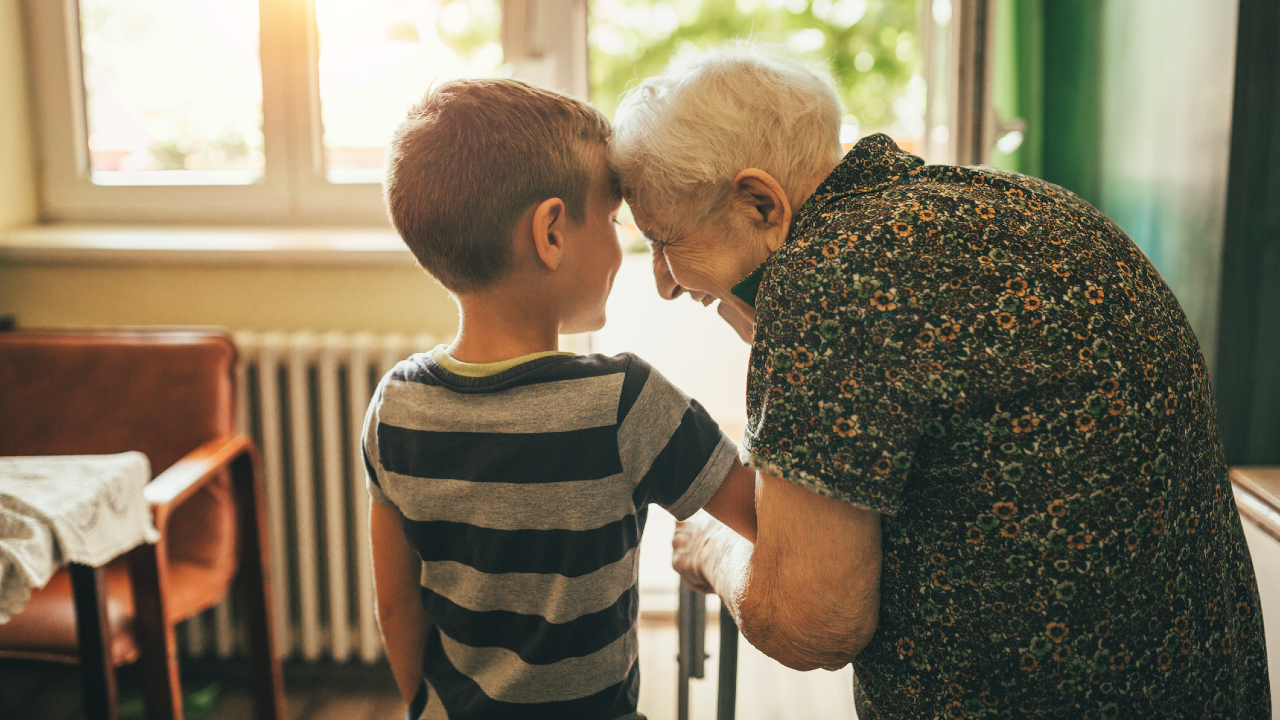This secret ingredient can boost your kid’s health (and it’s not veggies!)

Since the day my daughter had her first bite of solid food, I’ve been fretting over her diet. I mashed organic peas, pureed heritage tomatoes, and froze nutritious soups. When she got older, I made sure she finished her broccoli and that sugar wasn’t the only carbohydrate in her meals. I might have been slightly obsessive, I admit, but I wanted to make sure she grew up healthy and strong.
In the meantime I was writing stories on health and nutrition and digging through hundreds of research papers a year. And out of this research a new story began emerging, whether I liked it or not—that while I fixated on organic produce and whole grains, I was missing another vital ingredient for what makes children live healthy and long lives: kindness.
I know, I know, it sounds a bit silly. Everyone knows they should teach their kid to be kind to others. But the benefits of doing so go way beyond what I thought. Science has shown time and again that kindness in all its forms—be it volunteering, charity donations or even small, everyday acts of helpfulness—can boost our immune systems, lower the risk of type 2 diabetes and cancer, and even prolong lives. “Not only does helping others promote happiness, it can predict health benefits for our kids, too,” says Lara Aknin, a professor of social psychology at Simon Fraser University in Burnaby, BC.
An act of kindness goes a long way
When I was looking into this, I found a study that had been done at a high school in western Canada where students were divided into two groups. The first group was to volunteer weekly at a nearby elementary school helping younger kids in after-school programs. The second group was wait-listed. After two months, when researchers who were running the experiment took blood samples from all the teenagers, they discovered that children who had already volunteered had significantly lower levels of cholesterol and of an inflammatory marker interleukin 6. That was great news, since elevated levels of interleukin 6 have been linked to an increased susceptibility to type 2 diabetes, cancer, auto-immune diseases and even severe Covid-19.
Other studies conducted across the globe make a further case for the health benefits of kindness and volunteering. Volunteers have lower risk of high blood glucose, lower risk of high inflammation, and spend 38 percent fewer nights in hospitals. A meta-analysis published by British researchers showed that those who are keen to help others live longer, too: volunteering lowers mortality rates (the percentage of people in a specific population that die) by as much as 22 percent.
And it’s not just formal volunteering that’s good for our health—small acts of everyday kindness can also make a difference. A 2017 study found that after performing daily acts of kindness for four weeks—things as simple as opening doors for someone entering a store or helping an older person load groceries— study participants exhibited less potential for inflammation. Even donating pocket money could boost our kids’ health. Aknin and her colleagues conducted an experiment in which students were given $10 and told that they could either keep the money to themselves, or share it with another classmate. The students who kept the money ended up feeling more shame, which then upped their levels of the stress hormone cortisol. Other studies have found that donating money to charity can lead to lower blood pressure and even increase muscle strength.
Humans are social animals, so it makes perfect sense that caring for others helps us feel better, lowers our stress and, as a result, boosts our health. It’s been demonstrated that “prosocial behaviours”—things like helping, sharing, comforting and donating—activate the so-called ‘caregiving system’ in our brain. In doing so, they decrease the activity in our brain’s “fear centre”, called the amygdala, allowing us to feel calmer and let the more rational parts of our brain take charge.
It starts with you
All this research had me convinced that I should put more time and mental energy into teaching my daughter to be kind than cooking organic broccoli. However, while this task seemed like it had the potential to be much more fun, it also felt less straightforward. According to John-Tyler Binfet, associate professor in the Faculty of Education at the University of British Columbia, parents should first and foremost model kind behaviours. If you don’t volunteer, don’t donate to NGOs, and prefer to honk like mad instead of letting others ahead of you in traffic, well, chances are your kids may not be the most charitable, either.
Once you’ve got the modelling part covered, however, there are other things you can try to further encourage kindness. One is ‘creative bibliotherapy’—reading books that inspire kindness while discussing the characters’ motivations, feelings and so on. In an experiment conducted in Italy, simple stories about two bunnies increased helpfulness in toddlers. The teachers reading the stories would ask the children questions inspired by the bunnies’ adventures, such as “And what face do you make when you are mad?” or “Do you get mad, too, if somebody takes your toys?” Similar empathy-training can be done at home. Just pick a good book with lots of references to emotions and discuss them with your children (Horton Hears A Who! by Dr. Seuss, for example).
If you want to go the extra mile, there’s even a special kind of meditation you can teach your kid that’s been shown to boost altruism. Loving-kindness meditation is when you send warm and compassionate thoughts towards others, such as “I wish XY is safe and happy.” It has been shown to boost altruism.
Binfet says it’s important to get kids in the habit of practicing kindness and helping others, which you can do the same way you reinforce other habits: by setting expectations and following up on them. “Just as you might ask “Have you done your chores?,” parents can ask their children ‘Have you done your kind acts this week?’” he says. Of course, it would be great if kids helped others not because we nagged them into it, but out of internal motivation. Here is one research-based tip: don’t reward them for volunteering. Kids who are promised something in return for helping others may do the tasks more eagerly at first, but once the carrot is out of sight, their enthusiasm dies down much more than that of children who were never rewarded.
Aknin also suggests that we should allow our children to make their own choices about when, where and how to help. “Instead of insisting that your child pick up trash in their neighbourhood or donate some of their allowance to the local food bank, ask your child how they’d like to help their community,” she says.
Although I still care about the amount of peas in my daughter’s diet, I’m also learning to appreciate the many health impacts of helpfulness, donations and volunteering. I’m just hoping my kitty-obsessed daughter’s newfound kindness won’t mean we will end up with twenty adopted stray cats—after all, that might not be optimal for my own cortisol levels.
The post This secret ingredient can boost your kid’s health (and it’s not veggies!) appeared first on Today's Parent.




